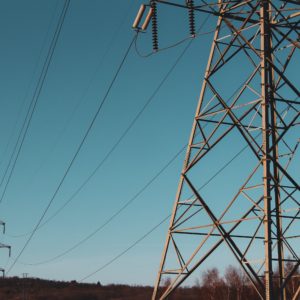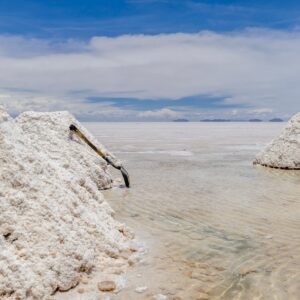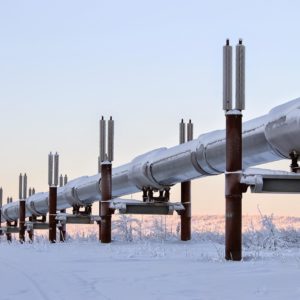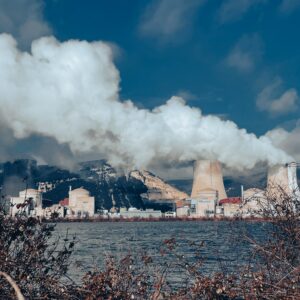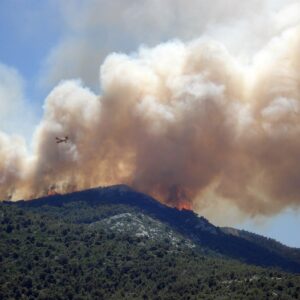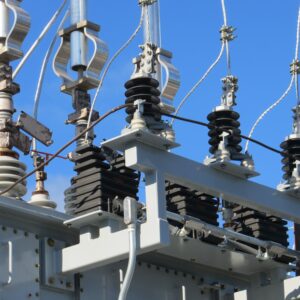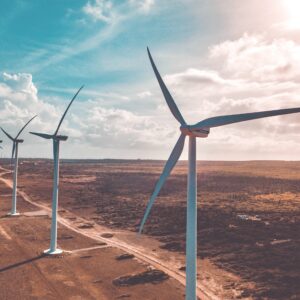American energy producers are supplying families and businesses with affordable, reliable energy while leading the world in environmental protection and climate progress.
High Electricity Prices Will Go Even Higher Unless We Change Course
"America is blessed with abundant supplies of energy: Natural gas, oil, and space for wind, solar, and nuclear are all readily available. We are also an innovative society, and the technologies for using these resources are improving all the time. Only policy failures that ignore reality can prevent us from enjoying affordable and reliable energy far into the future."
Critical-Mineral Diplomacy Needs to Focus on Supply, Not Demand
"The EU struggled politically to deal with competitive bidding among its member states first for vaccines during the Covid-19 pandemic, then for natural gas after Russia cut pipeline supplies last year. It understandably wants to avoid similar problems with new-energy metals. But high vaccine and gas prices caused by competitive bidding also generated results: Europe got vaccinated and gas inventories were refilled. Likewise, last year’s sky-high lithium prices triggered investment. Politicians dull price signals at their peril."
Biden greenlights massive Arctic drilling project
"The decision to greenlight ConocoPhillips’ Willow project comes on the heels of sweeping conservation measures the White House revealed late Sunday night to bar future drilling in the Arctic Ocean and tighten up conservation in the National Petroleum Reserve-Alaska, where the $8 billion Willow project will be located."
Twelve Years After Fukushima, More U.S. Nuclear Energy Is a National Security Imperative
"As tragic as Fukushima was 12 years ago, the world has rightly sought to learn and apply lessons that embrace the opportunity that nuclear technology offers. I am encouraged to see bipartisan and public support increasing in the United States. Nuclear energy’s time is now at hand; let us deploy a new, exciting, safe, and secure future."
A Burning Issue: The Economic Costs of Wildfires
Modernizing policies to empower people in all levels of government and in the private sector to take care of America’s forests will save lives and livelihoods, protect the environment, reduce costs to the taxpayer and lessen overall damages American on the economy.
Less Competition Won’t Fix the Texas Electricity Grid
Free market principles, and the all-of-the-above approach they deliver, are the solution to the problems in Texas, and in energy markets everywhere.
Business and Labor Agree: It’s Time for Permitting Reform
"As our nation strives to build out our domestic infrastructure, President Biden must remain committed to permitting reform. We need it. The challenges presented by the issue are not abstract to the energy workforce. There are real-world negative consequences from this regulatory regime. Many have been pushing to modernize NEPA for years. It’s time to get the job done."
Republican Governors Show Clean Tech Leadership
"Republican governors are working to deploy U.S.-made clean energy technologies, responsibly develop American energy, and secure domestic supply chains. Speaker McCarthy and House Republicans have developed an equally effective agenda to lead this nation. Now, it is up to all of Congress to take a page from these governors’ books."
Without Unlocking Domestic Mineral Supply, the U.S. Will Become More Reliant on China
"The ultimate point is that there is a wide gap between the way politicians, and even many analysts, enjoy talking about clean energy and what sort of policy would be needed to turn those hopes into reality. For the United States to become a dominant producer of clean energy, it will need to either significantly increase its imports of clean energy-related minerals, or it must find ways to make it easier to produce these minerals domestically. If the United States doesn’t take either of those steps, then it will probably continue to rely on the domestic energy sources in which it is already abundant, which are predominantly fossil fuels."

